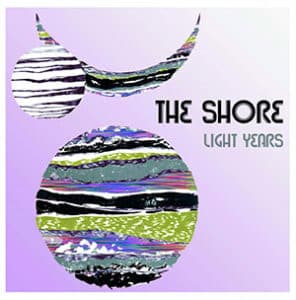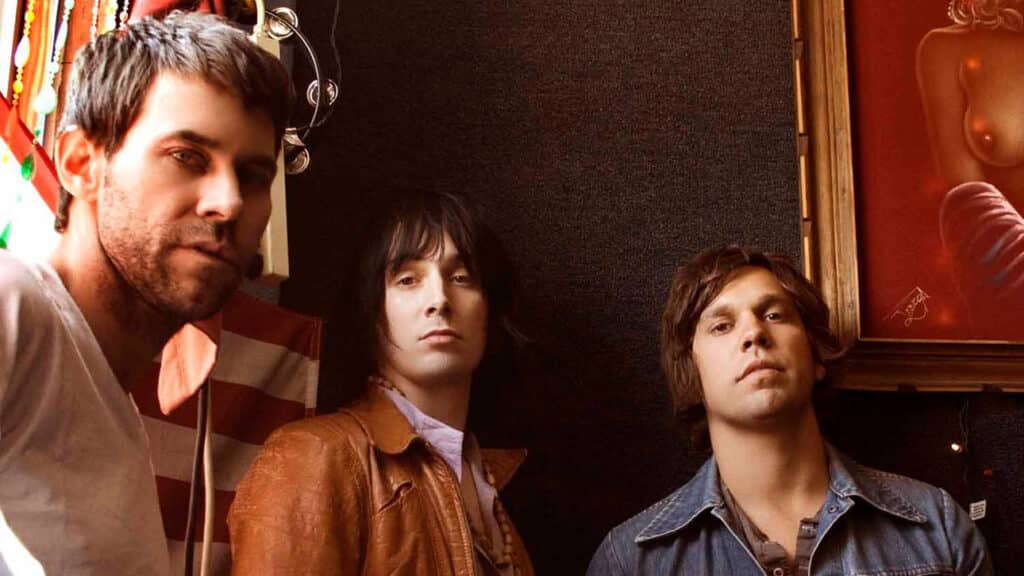
Better late than never, right? Rock history has many good records to choose from and plenty of great ones. At the pinnacle of this music pyramid sit the undisputed all-time classics, defined as such because most fans and critics already know their titles, and acknowledge them by consensus.
Another rarefied level exists, however. Albums worth not 50 spins, or even a hundred – but thousands of listens, popularity be damned. Granted, such favoritism can be a matter of taste. But from a subjective standpoint, these ethereal testaments soar beyond merely excellent to “otherworldly”, in a nearly literal sense. We’re talking genuine “Music of the Spheres” shit. As in, from what mystical planet did these exalted sounds spring forth, and how did we mortal humans ever manage to capture them on vinyl?
A cherished personal example would be Kansas’ Leftoverture album from 1976. Much of that record sounds alien even today – a supernatural tour-de-force of symphonic creativity, unlike anything else from its prog-heavy era. In the 2015 documentary Miracles out of Nowhere, songwriter Kerry Livgren (a deeply religious man) has difficulty explaining where it came from. Meanwhile, his band mates ecstatically recall their Leftoverture recording sessions, daily wondering what extraterrestrial sorcery Livgren would pull out of his hat next. In sports, we call this “The Zone”. What a feeling – yet at the same time, wholly inexplicable.
Two additional caveats. First, this is almost exclusively an instrumental phenomenon. Sure, sublime lyrics never hurt. But timeless aural transcendence is a question of sounds, not words. Our reptilian brains may have difficulty defining these sensations out loud, but we know them when we hear them.
Second – and more tragically – even the most talented acts have trouble replicating such success. Because, as a rule, this brand of lightning strikes only once.
When the Shore released their self-titled debut in 2004, critical reaction was decidedly mixed. Though pleasant-sounding and undeniably well-crafted, The Shore lacked distinction, relying too heavily on obvious Britpop influences such as Ride and especially the Verve. Not irrevocably damning for a debut record, but still an inside strike against it – although fan reaction was generally more favorable.
Beyond the music, a crippling lack of label support was out of the band’s control. The Shore signed to Madonna’s Maverick Records in 2003, but she departed two months before The Shore’s release, contributing to the firm’s unceremonious implosion. Most of the label’s prospects and stability left with her, and Warner Music soon assimilated Maverick.
Even so, the nucleus of potential on The Shore was still evident. “I’ll Be Your Man” swaggers just right, incorporating some much-needed melancholy and hinting at greater complexity to come. The vocals and lead guitar on the epic finale “Coming Down” are genuinely moving and would find plenty of company on Light Years next time around.
Lead singer and songwriter Ben Ashley recalls those debut sessions as a learning process. “We loved the Byrds (who doesn’t?), Oasis, Beachwood Sparks, and the Verve. So that’s where we wanted to go. I remember throwing lots of pain into writing the songs and then actually having to figure out how to play them in the studio.” Producer Rick Parker also wielded tremendous influence on their debut and 2008’s Light Years.
Bassist Kyle Mullarky, now a prolific producer in his own right, recalls Parker’s setup at Los Angeles’ Sandbox Studio. “Amazing production equipment,” he says today. “Heady times, fondly remembered.” According to Ashley, Light Years took only two weeks to record but nearly two years to create. “The material was just there, know what I mean? It wouldn’t turn off,” he says. Ah, the impenetrable creative process! Reminiscent of Kansas’ Livgren in his day, and surely no coincidence.
As for the music itself, Britpop has always been a cranky and frustrating genre. For every satisfying, mind-expanding release like Cast‘s 1999 masterwork Magic Hour – which still holds its own against any album from that fertile year, not just the UK – there are ten overbearing others with too much whiny faux-swagger and not enough inspired rock power. (Names redacted.) If Britpop was an allergic reaction to dour earthy grunge, as many have claimed, then it follows that authenticity and inherent precociousness might present a challenge. Not to mention the fact that Light Years landed about ten years past the genre’s mid-1990s heyday.
But like all enduring music, quality begins and ends with songwriting. Light Years boasts a seductive intimacy typically reserved for more baroque pop while maintaining the muscle side of the equation. Or perhaps this album just does Britpop the way it should have been done from the beginning – inspired rock songs peppered with labyrinthine bridges, tricky segues, and other unorthodox yet engrossing touches. (Electric sitar, anyone?) The most conventional track is the opener All I See”, which, while pleasing enough, yields little hint of the sophistication to come. In fact, it might properly be seen as the Shore’s formal sendoff to their 2004 debut.
Then the flame really ignites. Light Years slides into its predominant mood on song two, “Listen to Me”, whose buzzing sitar backs a chiming, sinewy melody so addictive as to sound immortal. Mullarky reports that his music tastes run to the trippy side, making “Listen to Me” one of his favorites on the record. Indeed, the tune would form a perfect soundtrack for any itinerant wayfarer condemned to wander lost highways for eternity.
Side-note time: Historically, by definition, popular music is all about repetition. Most talented songwriters struggle to invent one simple and solid refrain, construct a hit around it, and then waggle it in our faces for four minutes. Think Bruce Springsteen’s “Glory Days”, or J. Geils Band’s “Centerfold”: both are undisputed chart classics and still catchy as hell. But what happens when an album – heck, each song on an album – contains half a dozen hooks of that caliber? Then we’re in Valhalla territory. As Livgren observes of the rock classic “Carry on Wayward Son” during the Miracles documentary, “Every line in that song is a hook.” Great hooks are like musical cliffhangers, leaving the audience starved for more.
So when “Showers You With Love” follows “Listen to Me” on Light Years, cramming at least four ingenious hooks into one song, the ear is officially addicted. Insidious flypaper lines like “Saw you in the slipstream”, “Covered you in roses”, and “Dancing in the stardust” entrap the listener, weaving up and down in parallel sonic unison. The track’s bridge is another highlight: a rolling, skidding reversal of the dominant choral structure.
Ashley has a major soft spot for the next tune, “Wandering Light”. “The idea for that song came from staring at sunlight on the floor of my room,” he says. “I was in a certain mental mood, if you know what I mean.” The singer hints at how that mood was achieved, but in this line of work, we make no assumptions. In any case, “Light” is utterly and winningly sweet, like a contemplative afternoon in a hammock or lawn chair – sparking the precise bucolic mindset Ashley was gunning for. His vocals also prove a brilliant match, heeding the Britpop axiom that laconic is sometimes more powerful than arena-loud.
Soon afterward, Mullarky’s signature trippiness returns for “Rising Flood”. The track is pure sorcery from start to finish, taking its cue from poignant string-backed standards like Porcupine Tree‘s affecting “Lazarus” from 2005. Ashley has a considerable talent for constructing unexpected arpeggio progressions. His plaintive top-to-bottom intonation during the song’s chorus – “‘Cause this flood is rising / And I feel I’m going down” – would resemble a volatile stock-market graph if mapped on paper.
“Gentle Moon”, “If Ever You Or I Were Lost”, and “Open Up the Light” follow next. Each is excellent in its own right, particularly “Light’s” cozy, lyrical warmth and “Moon’s” Mellotron-backed chorus. But it was rocker pageant “On the Way” that produced our most amusing snippet of conversation. In the 1997 film Boogie Nights, Mark Wahlberg’s porn-star character Dirk Diggler books studio time to record a notoriously awful 1980s-rock parody called “You Got the Touch”. Sample lyrics: “You’re a winner / You got the moves, you know the streets…” Perhaps it’s a comical stretch, but this reviewer always pegged “On the Way” to be the vintage early 1980s anthem Diggler was trying to write. Dead silence from Ashley and Mullarky – until assured this was a compliment of the highest order! Then laughs all around.
As was once the rage, the original Light Years CD featured a bonus track called “Slip Away”. Since hidden tracks are a non-sequitur in our modern streaming age, “Slip Away” winds up being Light Years’ last song. But as originally intended, Ashley confirms that the final track is actually the epic rock opus “Lose My Breath”, which surges and recedes at least three riveting times over its nine minutes – a breathtaking denouement to what has proved over many hundreds of listens to be a timeless, gratifying rock and roll statement.
So, where are they now? Since 2013’s worthy followup, Second Sight, Ashley has been out of the music industry. As for the busy Mullarky, his subsequent production/engineering credits include Babe Rainbow, the Allah-Lahs, and the Abigails. From a human relations angle, both report they’re still in touch with everyone who contributed to the Shore’s three LP releases.
Crabby music columnists are a tough lot to please. Our street cred is modest and limited, so we don’t publicly take up lost causes very often. But Light Years makes the cut, representing one of the finest rock records nobody’s ever heard. Just about anyone who manages to encounter this album adores it; unfortunately, thanks to a confluence of bad luck and poor timing, not enough people did. It’s that rare brand of music requiring zero accompaniment. No reading, no crowded parties, no spreadsheets at work. Just a cigar, a drink, and a sunset to savor its ineffable beauty.
Light Years and Second Sight are available on Spotify and at Bandcamp.com.


![Call for Papers: All Things Reconsidered [MUSIC] May-August 2024](https://www.popmatters.com/wp-content/uploads/2024/04/all-things-reconsidered-call-music-may-2024-720x380.jpg)



